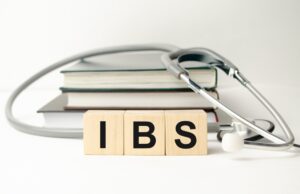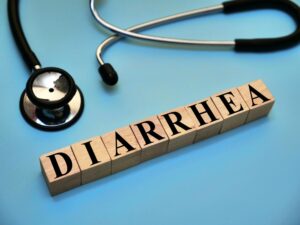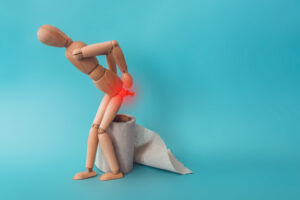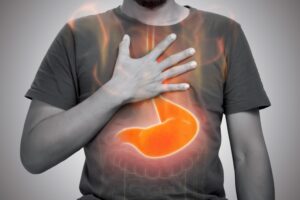
Understanding the Four Types of IBS
One day you might feel fine, and the next you’re dealing with debilitating cramps, bloating, and unpredictable bathroom emergencies.

Diet plays a crucial role in the management of gastrointestinal disorders. Eating the right foods promotes smooth digestion, enabling the dieticians’ patients to avoid possible diet-caused complications.
Food intolerance is a major issue among gastro patients. They’re unable to break down certain foods leading to diarrhea, gas, and other complications. When undergoing treatment for a gastrointestinal disorder, working with a dietician is vital, as they can provide advice on what to eat and avoid to support your healing.
In this post, we seek to find out how dieticians can help if you see a gastrointestinal specialist. For instance, research has shown that a low diet of fermentable oligosaccharides, disaccharides, monosaccharides, and polyols (FODMAP) helps improve gastrointestinal symptoms among irritable bowel syndrome (IBS) patients. Continue reading for information.
A registered dietician (RD) is a professional accredited by the Commission on Dietetic Registration (CDR) to practice as a food and nutrition expert. RDs work across different settings, including health care, education, government agencies, research, business and industry, and many others.
A registered dietician has the expertise to address complex issues surrounding food and nutrition, enabling them to help people in disease management and prevention. As part of their role, they interpret complex nutrition research and advise their clients on the right food choices to promote their health. For instance, in providing medical nutrition intervention, they advise patients on the best foods to eat and how to prepare them.
Here is a rundown of what a registered dietician does;
Generally, a registered dietician possesses the essential skills to offer custom diet advice to clients based on their specific conditions, preferences, and budget. This means they’re good decision-makers with the ability to solve complex problems. They also possess active listening skills and are socially perceptive, besides other skills that enable them to be effective in their role as nutrition counselors.
As mentioned earlier, diet and nutrition play a crucial role in managing gastrointestinal disorders, such as celiac disease, irritable bowel syndrome, Crohn’s disease, inflammatory bowel disease, and bile acid malabsorption. This is due to the strong correlation between eating habits, symptoms, and disease activity in many digestive disorders. For this reason, the importance of gastro patients seeking dieticians cannot be overemphasized.
Here is a summary of the specific ways in which a dietician can help you;
The dietician assumes an all-around role in helping you adopt a diet that promotes your health while managing your condition. As such, they may also provide cooking tips and snack ideas and ensure you prepare and consume foods that make you feel good inside out.
Following major surgery, the digestive system is susceptible. Certain foods are highly recommended as they’re easy on the gut and quicken healing.
After the surgery, the less load you put on the digestive system, the faster it recovers. Immediately after the procedure, you may be required to take non-carbonated water, then liquid food for some time.
Essentially, the surgery you have determines the type of food you eat. For instance, if you have bowel surgery, you should take a low-fiber diet. Similarly, if you have diverticulitis, you would be advised against eating nuts and so forth.
Other tips may include:
As earlier said, the dietician will recommend foods based on your condition and type of surgery. Essentially, you require a combination of gut-friendly nutrients, including; antioxidants, carbohydrates, fiber, potassium, magnesium, Vitamin C, and Vitamin K, among others, as advised.
Here is a list of possible recommendations.
The dietician will also provide a list of foods you should avoid, including processed and fried foods and alcohol.
Working with a dietician during your gastrointestinal treatment is crucial. Food intolerance is common among gastro patients and can impede the treatment’s effectiveness. Seeking a registered dietician is your best move toward ensuring you’re eating the right foods that support your healing.
Among other things, a dietician collaborates with your doctor to advise on the diet based on your gastro problem and preferences. They also help you create a nutritional and meal plan and guide you on when to eat and how much. Besides, the dietician can also provide you with cooking tips and snack ideas and monitor your progress, recommending meal modifications where necessary.

One day you might feel fine, and the next you’re dealing with debilitating cramps, bloating, and unpredictable bathroom emergencies.

A person can have polyps for years and be completely unaware, which is why screening is so important.

An IBS self-assessment of your symptoms can suggest you have the condition, but it cannot replace a clinical evaluation.

A diet rich in diverse, whole foods supports a wide variety of good bacteria, a state known as high microbiota diversity.

Dealing with diarrhea is never pleasant. The urgent, frequent trips to the bathroom leave you feeling drained and uncomfortable.

Understanding the link between IBS and hemorrhoids is the first step toward finding effective relief and improving your quality of life.

By focusing on credentials, key quality metrics like ADR, and your own comfort, you can make an empowered choice.

Fatigue is not just a minor complaint for those with IBS; it’s a major, pervasive issue. This isn’t just feeling a little tired; it’s a profound sense of exhaustion that isn’t relieved by rest.

The connection between your weight and your reflux symptoms is a two-way street, with each one influencing the other.

A primary care doctor is an excellent starting point; finding a specialist who understands the complexities of IBS can be a game-changer.

Knowing what to expect can help ensure you are fully prepared for your colonoscopy, a critical tool in preventing colorectal cancer.

When a flare-up strikes, the natural instinct is to reach for pain relievers. But can these common medications help, or make things worse?